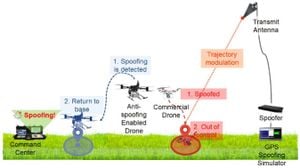The Thai government has officially launched its electronic examination system for civil service positions, marking a significant advancement in the efficiency and transparency of public service recruitment. This innovative platform, framed under the Office of the Civil Service Commission (OCSC), aims to streamline the examination process for aspiring civil servants across the country.
On December 25, 2023, the OCSC announced the registration for the examination, utilizing the online portal job3.ocsc.go.th. Candidates can now register for the e-Exam from the comfort of their homes, which is expected to simplify access for applicants and modernize the overall process.
Deputy Secretary-General of the OCSC, Kitipong Maharatanawong, emphasized the goal of this system. He stated, "The e-Exam system aims to provide transparency and efficiency," reflecting the government’s intent to improve the integrity and accessibility of civil service examinations.
With the new e-Exam system, the OCSC has detailed the necessary procedures and requirements for candidates. Aspiring civil servants must adhere to strict identification protocols and dress codes when attending the examinations. For example, candidates are required to present their exam cards, which can be printed via the online registration system. They must also show valid identification documents, such as national ID cards or government service IDs, as part of the checks before entry.
One notable requirement is the punctuality rule; candidates must report to their designated testing locations at least 30 minutes prior to the commencement of the examination. Those who fail to comply with this timing may find themselves barred from entering the exam hall. "Candidates must report at least 30 minutes before the exam starts, or they won’t be allowed to enter," states the OCSC’s recent announcement.
On examination day, the environment will be strictly organized to minimize disruptions and uphold examination integrity. Candidates are expected to behave appropriately, dressed respectfully according to specified standards, and refrain from bringing any prohibited items. These include communication devices, recording instruments, and various electronics, which are strictly banned under the examination regulations. Violations of these rules could lead to immediate disqualification.
''Failure to follow identification rules could result in disqualification from the exam,” reiterated the OCSC, emphasizing the importance of compliance to maintain fairness and order during the examination process.
The shift to e-Exams is part of Thailand's broader strategy to innovate public sector recruitment methods. By digitizing the examination process, the government hopes to mitigate issues of malpractice and improve the overall candidate experience. The use of online platforms allows for seamless registration and facilitates easier access to information for candidates.
Aside from the technological advancement, the OCSC has provided clear guidelines on what candidates are permitted to take with them to the exam—essentially restricting any personal items to only the necessary documents, like the printed exam card and identification. This restriction aims to maintain security and focus during the testing period. Only basic stationery—a pencil, eraser, and pen made available by the OCSC—are allowed.
While the transition to the e-Exam system presents exciting prospects for the civil service of Thailand, it also brings new challenges. It necessitates candidates to navigate through digital platforms proficiently and adapt to online examination formats, which can be demanding for some segments of the population. Training and resources will likely need to be organized to assist candidates unfamiliar with the technology.
The anticipated impact of this innovative system extends beyond mere accessibility. It aims to build trust among the public, ensuring the selection of civil servants is based on merit and fair evaluation processes. The OCSC’s commitment to transparency will help to alleviate concerns or skepticism surrounding government examinations.
Overall, Thailand's shift to the e-Exam system signals progress and modernization within the recruitment processes of the Thai civil service. This transformation is expected to redefine how future civil servants enter the public sector, potentially setting benchmarks for other governmental departments. With the first examinations scheduled following the implementation of this system, all eyes will be on the results to see how efficiently and effectively this new process has been integrated.



